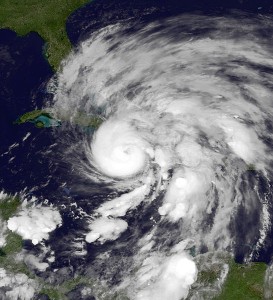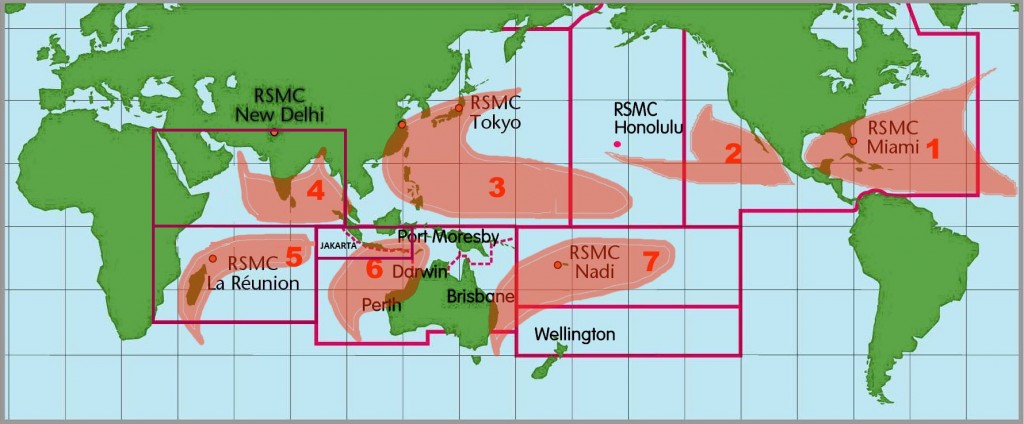Hurricane Sandy has now gone. But it has left behind the traces of its wrath: devastation.
In New York City, Angela, recent expatriate to the United States is still shocked. She came from Spain six months ago with her husband and 2 children. Last week when hurricane Sandy hit New York City, she thought their last hour had arrived.
When a natural disaster strikes, we all feel vulnerable.
But when you’re abroad, struggling to understand the language, unaware of local habits, it’s far worse: you feel even more powerless and helpless.
What are the lessons of Hurricane Sandy? What can you do to protect and shelter your family in a foreign land when disaster strikes?
So, let’s have a look at what we (as expatriates) can learn from Angela’s story.
Now safely sitting in the living room, Angela can’t help but recall the whole chain of events. It happened so quickly.
She first heard about the storm on CNN on October 24th. Sandy had already made its first victims in Jamaica. The National Hurricane Center mentioned, however, that the storm could become even more powerful. And it could possibly hit the East Coast.
Angela decided to watch the news more attentively in the next days but not to worry. The weather forecast could still change.
But as time passed, the forecast became more and more dire. Sandy would be a big storm, a super-storm. When Angela was told that they had to evacuate, she panicked. “What? Leave my flat? In this foreign country? Those Americans, they’re overreacting as always. They’re doing too much. Look at their presidential election campaign. Everything is so out of proportion these days. They make a mountain out of a molehill!
The media is inflating this story to make the news even more sensational: a hurricane on in New York City! I can’t believe it. I have barely even begun to settle in. It won’t be so serious. And even if we wanted to leave, where would we go? We have neither family nor friends here! And if we are stuck in a traffic jam, on the road, it’ll be even worse.”
And so, Angela and her family decided not to evacuate. They were going to stay and ride out this over-exaggerated media sensation.
Unfortunately, the forecast was accurate: hurricane Sandy struck with full force on October 29th.
Howling wind gusts. Lashing rain against the windows. Dangling power lines and traffic lights. Uprooted trees. And this huge crane (!) three blocks away, rocking back and forth!
It was Apocalypse. Now.
Angela was terrified.
The power went off. The street was flooded. Angela and her family were alone in the empty, evacuated building. Minutes seemed like hours, as they quivered in the dark. The kids were crying. Angela and her husband felt so guilty. They were thinking: Why did we move here? What if we all die in this place?
Where did Angela go so wrong? And are you (as an expatriate) in danger of making the same mistake without even realizing it?
-
Your culture affects your perception of reality in a foreign land
Angela is from Spain, where safety and regulations are not as strict as in the US. Angela had been working several years for an American company in Europe. So she could compare both approaches. She recalled all the safety measures she and her colleagues were asked to follow. Sometimes, trivial things like holding the handrail each time you take the staircase or wearing protective gloves when using a knife (even to slice the bread at home!). They used to laugh at those excessive precautions.
This period of presidential elections did not help either. In the last days before the elections, a frantic frenzy ruled the media. Each candidate multiplied announcements, promises and statements. And what about Barack Obama’s warning on TV? Angela thought he was inflating the whole story, to appear as if he would save the world.
In short, Angela believed those evacuation procedures were totally out of proportion.
-
You don’t know what’s normal or unusual so you’re slower to take action
In a foreign country, you’ve lost all your bearings. Everything seems somewhat unreal: the landscape is different, the people look different, the houses are different. It’s like in a dream… or a nightmare. Because you lack day-to-day living experience and background, it’s difficult to judge whether there is something abnormal going on.
A friend of mine happened to spend some time in Thailand on vacation during the tsunami in 2004. Her bed shook a few hours before the disaster but she thought: “Oh, this must be normal. I’m in another part of the world.” She also recalled “Upon my arrival, I was surprised by the birds chirping so loudly and the noise coming from all the animals. Life was so present everywhere. A few hours before the tsunami struck, nature had become silent.”
Before you realize that something serious is going on, you may have lost precious hours. This only worsens the situation: you have less time to prepare, no friends or family around, no landmarks.
In those situations, you may be tempted to turn to local people for expertise. While this may be of great help, be careful and keep your own judgement! My friend in Thailand went to the beach that morning. How surprised she was to notice that the sea had completely withdrawn, leaving fishes agonizing on the sand. Because she had studied tsunamis at school, she knew immediately what this meant. She warned the local people (who neglected her advice) to leave as soon as possible. Most of them just smiled. Sadly, they almost surely died, while my friend returned safely home.
-
You don’t want to believe it: the truth is too frightening to be true.
It’s just human. Universal. Pure denial: the size of the event and its implications are too overwhelming. It means that your life has to be turned upside down. At once. It means that the priority is no longer an important business meeting, your appointment with a friend or the school excursion. The focus has changed, drastically. The question is now: how to protect yourself and your family from a life-threatening danger? The goal becomes survival.
Even in your own country, you would struggle to accept this radical shift in mindset.
When you finally face reality, you’ve lost precious hours. Keep in mind that hurricane Sandy formed on October 22nd hit Jamaica 2 days later and NYC 7 days later. Any day that passes puts you into an even more vulnerable situation.
What are the options: staying at home or seeking shelter? A real dilemma.
In a new country, the place that feels the safest to you is where you’re living: your home. But this is an illusion. The building in which you live may not be safe at all!
Staying may be scary but leaving the familiarity of the home you just barely made for yourself seems even more scary.
And to go where? No family, no friends. You may not even have a driver’s license or a vehicle. If you do, how comfortable do you feel driving a car in those circumstances? What if you misunderstand the evacuation messages and you write down the wrong shelter address? The roads may be blocked due to traffic jams. What if you get caught by the storm in the car? If the streets are flooded? It may be even worse.
There is almost no choice anymore.
-
You feel guilty because you made the decision to come to this foreign land which has suddenly become dangerous.
Your decision jeopardized your family. You feel this is all your fault. You made the choice to change country. You put yourself in this situation: you’re at the wrong place at the wrong time.
So what can we, as expatriates, learn from hurricane Sandy if we leave in an exposed zone?
Here is what I came up with:
1. If there is a danger mentioned in the media, whatever the country you’re in, take it seriously.
Shift your mindset immediately: make it your #1 priority. You can always downgrade the importance later on if necessary.
Discuss with colleagues at work, neighbours, schoolteachers to help you assess the reality of the event.
Ask older people supposedly having more experience. Has such an event already occurred in this place? But ultimately, make your own judgement.
Check with your embassy or consulate: they usually have a website and eventually a Facebook page, posting regular updates on the situation.
2. Evaluate the options before it becomes too late.
We, as expatriates, need to take an extra margin of time because we’re more prone to mistakes.
Check the location of the house (likely to be flooded?), the basement, the roof.
Find out whether there is shelter organized and where.
Be open to any other option: colleague or even neighbour.
3. Prepare a survival kit.
Store plenty of water and food supply. Buy devices which don’t need power like a hand-crank lantern with an integrated radio for example or a camping stove. You’ll find here a complete list of recommended items.
Ask the kids to select 3 little items they can carry with them in case of evacuation. This is meant to secure part of their emotional recovery should everything else be destroyed. They will appreciate keeping symbolic items, as testimonials of their past and as part of their identity.
4. Establish a communication plan with your family members.
Make sure you have loaded cell phones (and extra mobile phone batteries) and secure a land-line telephone.
5. In case of problem, don’t blame yourself or each other.
Keep all your energy to think positively and remain calm. Guilt or anger won’t change the situation. I realize that it’s easier said than done but remember this quote from Vincent Van Gogh:
“The fishermen know that the sea is dangerous and the storm terrible, but they have never found these dangers sufficient reason for remaining ashore” Click to tweet
Expatriates are all fishermen in that respect.
And in the meantime, you think of grandparents, uncles, aunties, cousins and nieces, in-laws and friends far away who have nothing left but praying, don’t you? How can your relatives help?
And now tell me what you think. Have you ever been in the eye of the storm? What was it like? Share your story and your tips in the comments. Let’s build together the most complete list of recommendations we can, to prevent trauma (or worse) next time expatriates face a natural disaster.
* Angela’s story is the compilation of various testimonials from real expatriates.

